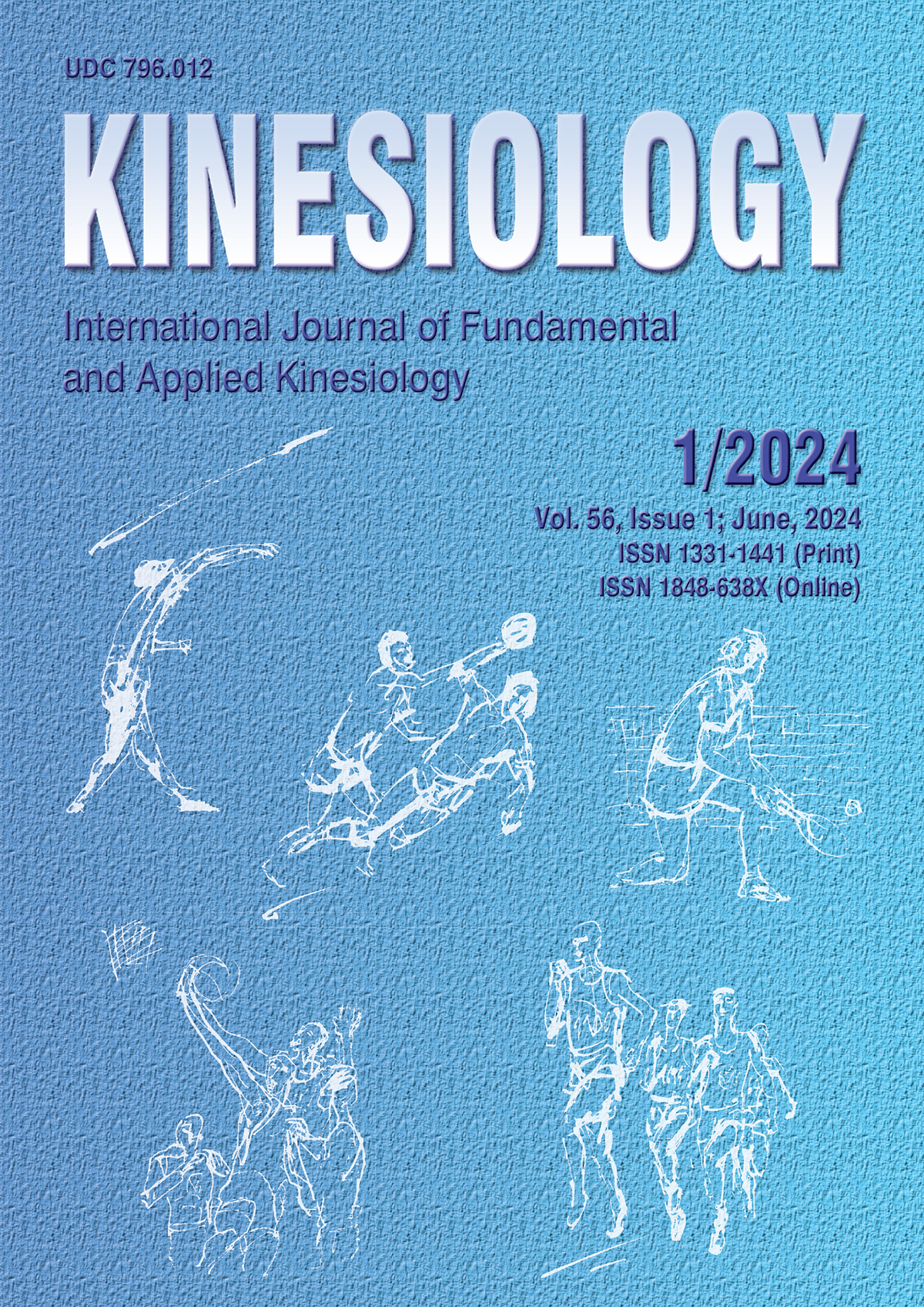THE EFFECTS OF CORE TRAINING ON ENDURANCE IN DIFFERENT TRUNK MOVEMENTS: A SYSTEMATIC REVIEW AND META-ANALYSIS
Keywords:
muscle strength, resistance training, athletic performance, exercise therapy, motor activity, physical fitnessAbstract
Core muscle endurance involves the trunk muscles’ capability to maintain a particular position for as much time as possible. It is essential to know how specific training aimed at this area affects endurance of different trunk movements performance and to what extent. The objective was to assess the effects of trunk training on different core muscle endurance measurements in flexion, extension, and right and left lateral flexion. A literature search was performed using different databases. The studies included: (a) cohorts of healthy people or subjects with chronic low back pain; (b) a core training intervention; (c) pre-post intervention parameters of interest; (d) a minimum of four out of 10 on the PEDro scale, and (e) randomised controlled trials. A random-effects model for meta-analyses was used. Fifteen studies were selected for the systematic review and 11 for the meta-analysis, comprising 1,213 participants. Compared to the control condition, core training induced a moderate effect on trunk flexion endurance (ES = 0.67), right-lateral trunk flexion endurance (ES = 0.77), left-lateral trunk flexion endurance (ES = 0.94), and a small effect on trunk extension endurance (ES = 0.49). To back up the results presented in this study, more research into the effects of trunk training on core muscle endurance is needed to confirm these results significantly. Core training improves core muscle endurance in four trunk movements. Core training is more effective in participants with pre-intervention poor results.
Keywords: muscle strength, resistance training, athletic performance, exercise therapy, motor activity, physical fitness
Downloads
Published
How to Cite
Issue
Section
License

This work is licensed under a Creative Commons Attribution-NonCommercial 4.0 International License.
At Faculty of Kinesiology we recognize that access to quality research is vital to the scientific community and beyond. Kinesiology is non-profit journal and all costs of publishing and peer review process are covered by the publisher itself or other funding sources like Ministry of Science and Education of the Republic of Croatia. Full text papers are also available free of charge at http://hrcak.srce.hr/kineziologija. There are no restrictions on self archiving of any form of paper (preprint, postprint and publisher's version).
Articles are distributed under the terms of the CC BY - NC 4.0
Kinesiology does not charge any fees to authors to submit or publish articles in our journal.


